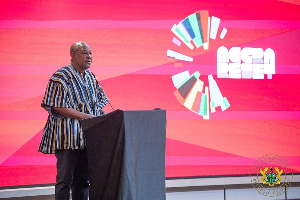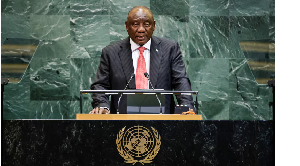Each year, 6.6 million children under the age of five in sub-Saharan Africa die from largely preventable causes. Three of such diseases, namely, diarrhoea, pneumonia and malaria, collectively account for more than half of all child deaths, according to the United Nations Children Fund (UNICEF).
This is a worrying situation because it puts the future of sub-Sahara in jeopardy. In view of this, the Ministry of Health (MoH) in collaboration with the Ghana Health Service (GHS) and UNICEF, is deliberating on how to scale up the Integrated Community Case Management (iCCM).
The iCCM is an initiative that was introduced in 2000 with the aim of increasing access to treatment to those beyond the reach of health facilities. It also has the potential to equitably address the three diseases in issue.
These issues came to light at a symposium on iCCM for stakeholders in Accra on increasing access to treatment for children. The symposium also aimed at assisting countries to integrate and take action on key frontline iCCM findings. The stakeholders included policy makers from implementing countries, Malawi, Niger, Nigeria and Ghana; university researchers that have conducted research on iCCM, Non-Governmental Organisations and United Nations Agencies.
According to the Director General of the GHS, Dr Ebenezer Appiah-Denkyira, as part of the iCCM initiative, residents of the various deprived communities were given six months intensive training to become Community Health Workers (CHWs) in the same localities they reside. He assured that the CHWs are being monitored by the GHS to meet standards set for them.
Dr Appiah-Denkyira said although Ghana has managed to reduce under-five mortality from 108 per 1000 live births in 1998 to 82 per 1000 live in 2012, a lot of the children under five were still dying of pneumonia, diarrhoea and malaria. The job of the CHWs could be life-saving as they can help identify and correctly treat symptoms of these three diseases at the onset.
The Minister for Health, Sherry Ayittey, said that in order to completely deal with the diseases, there was the need for collaboration between government, agencies and donors. Besides, political will was equally needed and that was why President John Dramani Mahama slashed the salaries of all the Ministers of State by 10% to support the fight against the diseases.
She disclosed that Government was building 1600 Community Health Centres to be managed by nurses and midwives and that such facilities would help improve the health of the children in those remote areas. Additionally, Traditional Birth Attendants (TBAs) in the deprived communities were being trained by the GHS to assist pregnant women.
She, however, noted that the lack of data was one major problem hindering the fight against diseases in the country since agencies and institutions bereft of it were unable to identify areas with serious cases, hence needed much attention.
Health News of Friday, 7 March 2014
Source: The Public Agenda













